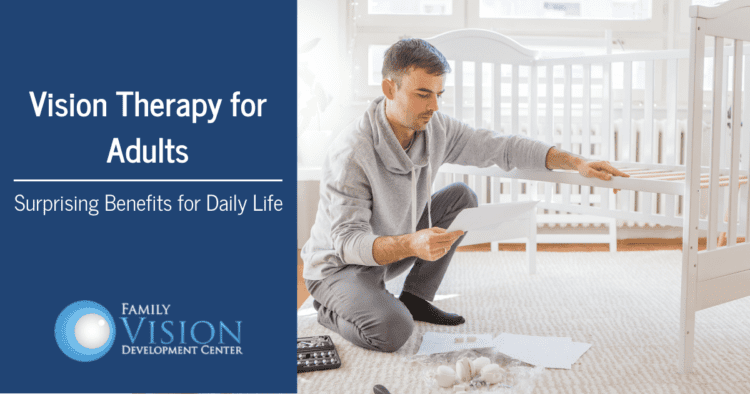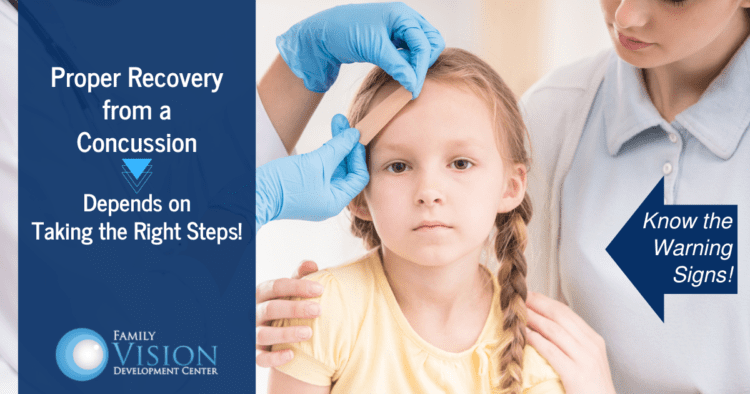

5 Surprising Benefits of Vision Therapy for Adults
Vision therapy is often suggested as a treatment for children’s vision disorders. However, vision therapy for adults can be an incredibly effective option that should be explored for a variety of reasons. You may not realize it, but your eyesight is linked to your overall health and well-being. When you have poor vision, it can impact your ability to perform everyday tasks and may even lead to more serious health problems.
That’s where vision therapy comes in.
Vision therapy is a type of in-office rehabilitation that uses special eye exercises to treat a variety of vision problems. For example, it can be used to correct conditions such as lazy eye, crossed eyes, and even double vision. But vision therapy isn’t just for children – it can also be used to treat vision problems in adults.
There are many benefits of vision therapy that are often overlooked. Here are some surprising benefits of vision therapy for adults and how it can help improve your overall quality of life.
Better Depth Perception
Depth perception is the ability to accurately judge the distance and position of objects in space. It is a vital skill that is essential for everyday tasks such as driving, walking around, sports, and more. Poor depth perception can lead to issues with spatial awareness, coordination, and overall safety. Fortunately, vision therapy can help improve depth perception in adults. The individualized therapy programs can help to strengthen the eye muscles and help your eyes work together. The result is improved depth perception which can help you better perform everyday activities and improve your quality of life.
Improved Hand-Eye Coordination
Poor hand-eye coordination can lead to difficulty completing simple tasks, such as tying your shoes or writing something down. Hand-eye coordination is also important for playing sports, operating machinery, and other activities that require precise coordination. Fortunately, vision therapy can help improve hand-eye coordination in adults. The customized vision therapy exercises can help strengthen and improve the connection between your eyes and hands. This leads to a greater ability to complete these daily tasks that may have previously been difficult to accomplish.
Enhanced Fine Motor Skills
Fine motor skills are used for tasks such as handwriting, buttoning a shirt, or turning a key. As adults get older, they may find increasing difficulty completing these types of tasks. Vision therapy for adults can focus on developing these fine motor skills, thereby helping to improve and strengthen the muscles used for these types of activities.
Improved Reading Ability
Strong reading comprehension is necessary for success throughout life. In fact, activities such as understanding directions, applying for a job, giving a presentation or simply enjoying a good novel can be affected without proper reading skills. Many vision disorders that affect reading ability can be effectively treated through vision therapy for adults. For example, conditions such as convergence insufficiency (eye teaming), amblyopia (lazy eye), and strabismus (eye turn) can all be corrected through vision therapy for adults.
Greater Confidence
An adult that suffers from a vision disorder can feel self-conscious, embarrassed or socially withdrawn. Correcting visual impairments later in life can actually give an adult a renewed sense of confidence, as it improves their ability to accomplish tasks and interact with others. Additionally, overcoming the challenge of poor visual skills can provide the motivation and determination to persevere through life’s obstacles as they come up.
Contact Family Vision Development Center for Vision Therapy for Adults
At Family Vision Development Center, we specialize in individualized vision therapy programs for both children and adults. Contact us at 630-862-2020 to learn more about all the benefits of correcting your vision at any age.
Family Vision Development Center is a full-service vision center offering innovative vision therapy services, post-concussive vision rehabilitation, comprehensive vision exams for eyeglasses and contact lenses, management of ocular diseases including glaucoma, diabetes, macular degeneration and cataracts, and a state-of-the-art optical center offering the latest designs in eyewear.

